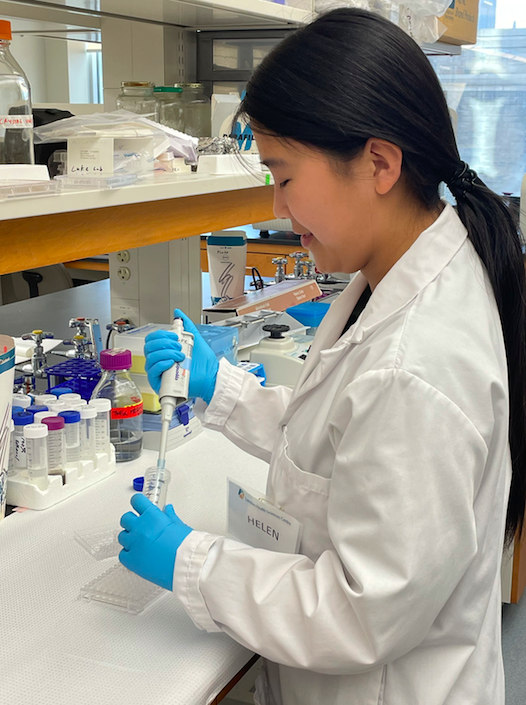New study aims to develop novel renal preservation method by mitigating ischemic injury and inflammation

By Quinlan Carnegie
One in 10 Canadians has kidney disease and 16 people each day are experiencing kidney failure in Canada, according to the Kidney Foundation of Canada. Transplantation is the most cost-effective treatment option for patients suffering from end-stage kidney disease.
However, more than 4,600 Canadian are now on dialysis because of lack of potential organ donors. Compared with living and brain-dead donors, kidneys donated by deceased donors are prone to inflammatory reactions in cold storage.
To identify the solution of this problem, medical student Helen Jin is working with Dr. Rabindra Bhattacharjee to find a therapeutic target to combat the ischemic injury occurs during pre-transplant preservation in the kidney through mitigating inflammation. This will surely improve the success rate of kidney transplants worldwide.
“I really believe in its potential,” Helen said. “I think everyone has heard of the perpetual shortage-of-donor-organs problem and this work presents a very realistic potential solution.”
As a third-year medical student at Schulich School of Medicine & Dentistry, Jin spends most of her days on clinical rotations at Victoria Hospital. She has successfully received a Summer Research Training Program (SRTP) fellowship from Schulich Medicine & Dentistry for two consecutive summers to work in this project at London Health Sciences Centre’s transplant research laboratory. She said the current situation in organ scarcity motivates her to continue with this work.
 Helen Jin - searching for a drug that will increase the success rate of kidney transplants. (Photo credit: Supplied)
Helen Jin - searching for a drug that will increase the success rate of kidney transplants. (Photo credit: Supplied)
In the kidney transplant immunology lab, Jin’s research focuses on finding a way to stop kidneys from becoming inflamed during preservation and transportation of the organs pre-transplant by utilizing two organ injury models developed by Bhattacharjee’s group.
Currently, when organs are being transported from deceased donors to the centre or hospital for transplantation, the only protective measure to keep them viable is to keep them in ice.
Because these isolated kidneys are transported without any oxygen and blood supply, they experience inflammatory reactions and often severe damage, rendering the kidney unusable or causing the organ to dysfunction if transplanted, said Jin.
The focus of Jin’s work is to study a drug repurposing approach using existing drugs for a new purpose, thanks to Canadian Institutes of Health Research (CIHR) funding awarded to Bhattacharjee.
Jin tests drugs for any anti-inflammatory side effects, and once a magic bullet is found, she is going to use it in the laboratory models developed, consistent to the current organ preservation standard-of-care. Since, the lab is using existing off-patent drugs already, a positive outcome has huge potential in the clinic.
Bhattacharjee, PhD, an assistant professor in the Departments of Surgery, Pathology and Laboratory Medicine at Schulich Medicine & Dentistry, and a scientist at LHSC, said that the drug repurposing can save both time and money.
“Any new drug goes through multiple stringent regulatory processes and approval from Health Canada and the Federal Drug Administration which may require five-to-10 years and millions of dollars,” said Bhattacharjee.
Jin’s research is in its beginning stages of development where she has tested several drugs to identify their innate immune target. She has been able to find a few that met the preliminary criteria for further studies in organ injury models developed in Bhattacharjee’s Laboratory.
Finding a solution to a shortage
The objectives of this CIHR-funded research project are to improve current organ storage systems which can contribute to successful transplantation of marginal organs to alleviate Canada’s organ donation shortage.
“Every year, many Canadians receive life-saving organ transplants, while thousands still wait, and hundreds die because not enough organs are available,” the Government of Canada has stated in a September 2023 news release on organ donation. “Despite significant progress in organ donation rates, Canada is still unable to meet the needs of all patients waiting for an organ.”
These facts emphasize the importance of the work.
“The current organ shortage is really heart-breaking,” Jin said. “I hope one day, research in this field will help both organ donors and recipients to achieve a quality of life they deserve.








